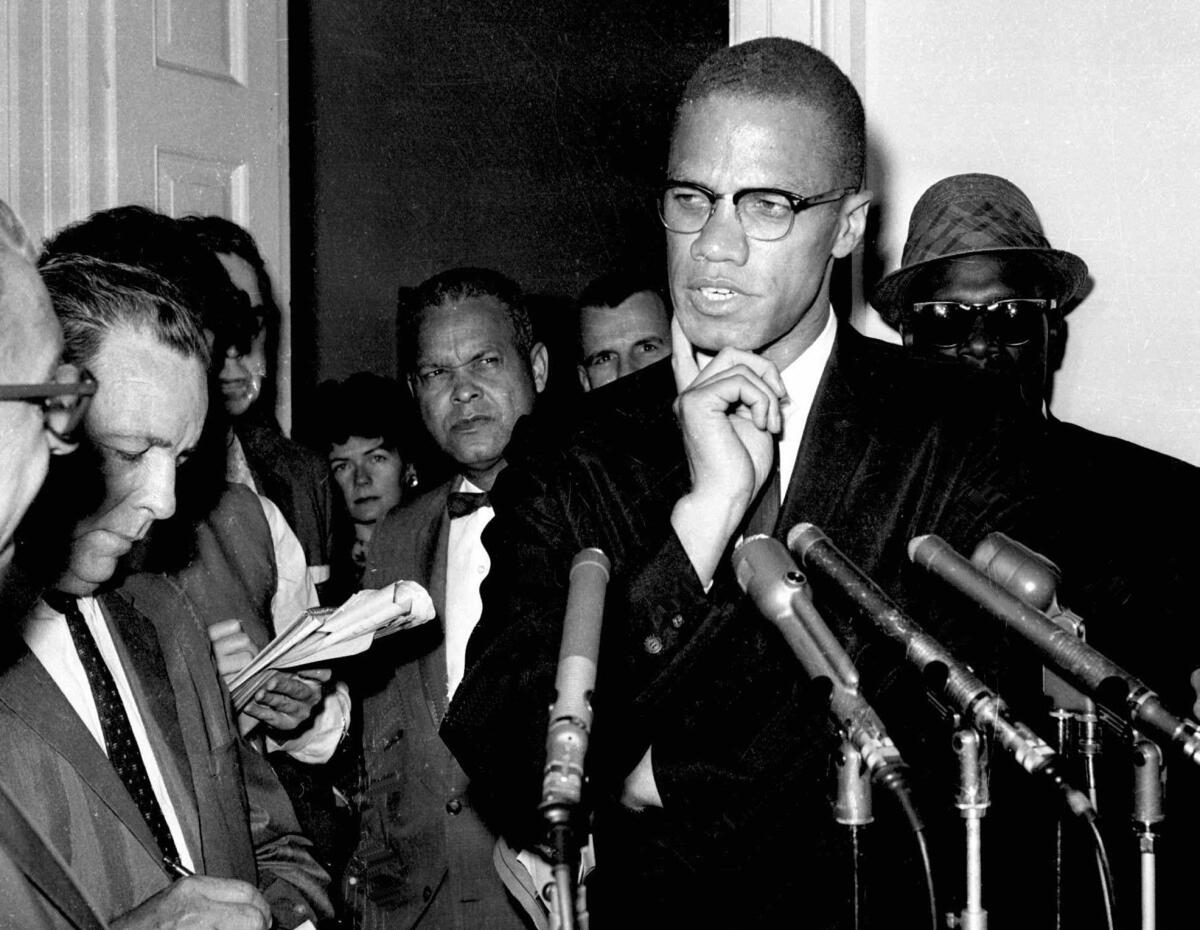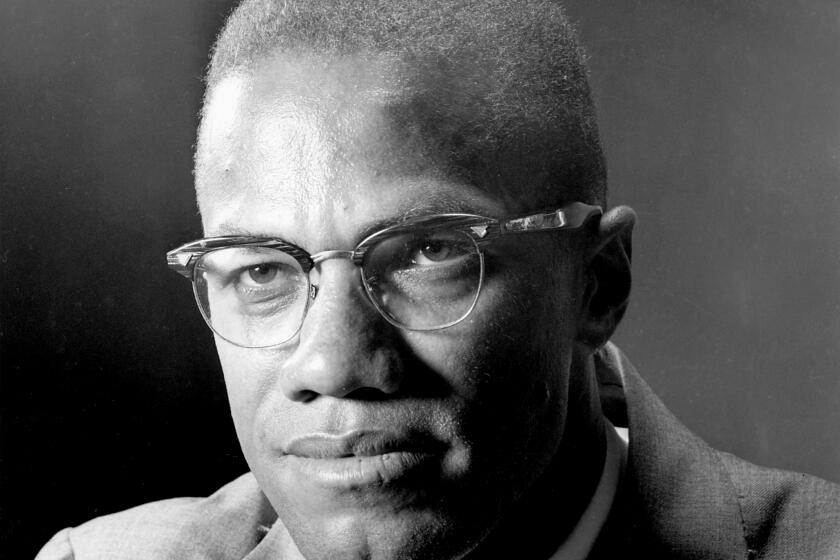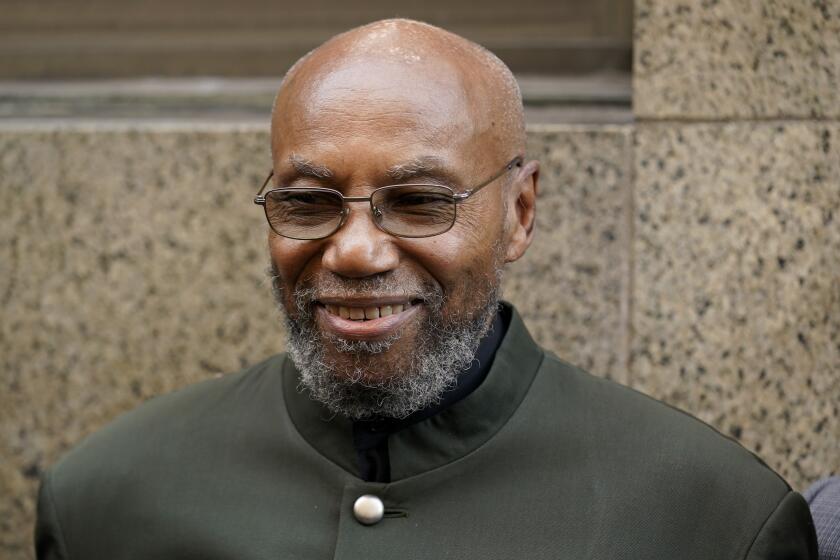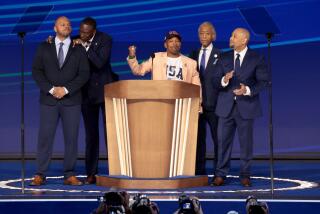‘Who Killed Malcolm X?’ helped exonerate two men. Its host says he wants more answers

Not two years after the seminal documentary series “Who Killed Malcolm X?” raised its titular question and spurred a renewed investigation into the assassination of the civil-rights hero, two of the three men convicted in the 1965 killing have been exonerated.
Manhattan judge Ellen Biben on Thursday dismissed the convictions of Muhammad Aziz and the late Khalil Islam, who each spent more than two decades incarcerated for a crime they did not commit. The third man convicted in the Malcolm X assassination, Mujahid Abdul Halim, confessed at the original trial to shooting the revered activist and said Aziz and Islam were innocent.
Abdur-Rahman Muhammad, historian and host of Netflix’s “Who Killed Malcolm X?,” reflected Thursday on the historic exonerations of Islam and 83-year-old Aziz, who said the guilty verdicts overturned today “should never have occurred.” Islam died in 2009.
“I am extremely happy and gratified and humbled to … see this day come,” Muhammad told The Times in a phone interview. “It’s a overwhelming emotion.”
Two men convicted in Malcolm X’s assassination are set to be cleared after more than half a century because authorities withheld evidence.
Over the course of six episodes directed by Phil Bertelsen and Rachel Dretzin, “Who Killed Malcolm X?” sees Muhammad embark on a mission to uncover the truth behind the mystery surrounding the fatal shooting at Audubon Ballroom in New York City’s Washington Heights.
Bolstered by compelling clues, as well as interviews with experts and eyewitnesses, the true-crime series argued that Aziz and Islam were never to blame for Malcolm X’s death. According to the Associated Press, attorneys for Aziz and Islam said a recent review of the case presented new evidence supporting Aziz and Islam’s innocence and concluded that authorities withheld pertinent information during the investigation.
“I wanted to correct the historical record, but I also was trying to establish justice in the case, because I knew that two men were wrongfully convicted for that crime,” Muhammad told The Times.
“And I also knew — from many, many decades of research — who actually were the ... assassins.”
Two of the men convicted in the 1965 killing of Malcolm X are exonerated after decades of doubt about who was really responsible.
“Who Killed Malcolm X?” is among multiple recent documentary projects that have had a real-life impact on their subjects and the legal system — ranging from Lifetime’s “Surviving R. Kelly,” which played a pivotal role in the sex-trafficking case against the R&B singer, to FX’s “Framing Britney Spears,” which reignited the movement opposing the pop superstar’s conservatorship.
In the last three months, Islam and Aziz were exonerated, R. Kelly was convicted and Spears’ conservatorship was terminated.
“It’s the democratization of technology,” Muhammad said. “You can get very, very powerful documentary footage even with an iPhone 12. ... When storytelling becomes democratized like that, then it becomes much ... easier for the story to get out. ...
“I mean, the R. Kelly thing has been an appalling disgrace for decades, and folks have known about it. But ... ‘Surviving R. Kelly’ took him down in the same way that ‘Who Killed Malcolm X?’ corrected this historical injustice.”
Though Islam and Aziz have been absolved, Muhammad still wants to know why and how they were framed for murder, as well as the “extent of the government’s involvement or knowledge of the assassination.”
With so many loose threads still dangling around the case, the scholar said audiences “probably can expect” a sequel to “Who Killed Malcolm X?,” but he declined to offer more details about what the next chapter would entail.
“Why were these men set up like this? That’s the question,” Muhammad said. “When the government knew who the real assassins were, why didn’t they just arrest the real assassins? ...
“We already showed in the series the government’s complicity in creating enmity and hostility and vitriolic rhetoric between ... the Nation of Islam against Malcolm and his organization. We gotta look at the counterintelligence program and the role that they played in this. ... Who were the nine undercover FBI informants who were in the ballroom who were never called to testify? Why wasn’t [Det.] Gene Roberts called to testify? ... These are the questions we’d like to ask.”
More to Read
The complete guide to home viewing
Get Screen Gab for everything about the TV shows and streaming movies everyone’s talking about.
You may occasionally receive promotional content from the Los Angeles Times.









